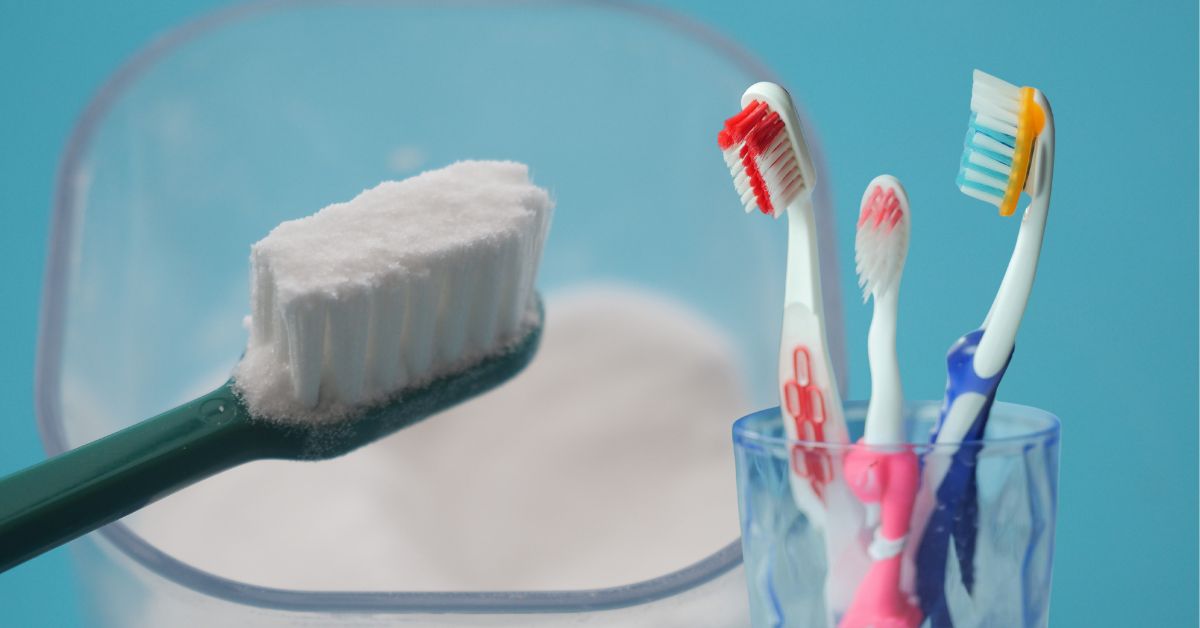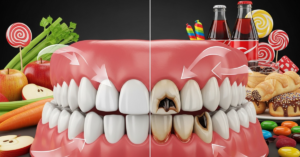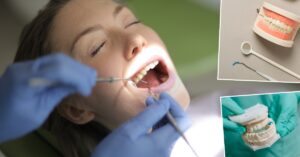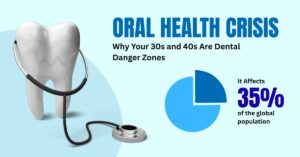Have you ever bitten into ice cream or sipped a hot drink, only to feel a sharp zing in your teeth? That quick, uncomfortable jolt can ruin the moment. The good news: you’re far from alone—millions of people experience tooth sensitivity, and science now has some exciting solutions.
A breakthrough study with 1,200 adults, published in the Journal of Dental Research (2023), uncovers which habits offer real relief. With just a few easy adjustments to your routine, you can reclaim the joy of eating and drinking—no more wincing at your favorite treats.
Here’s how you can outsmart tooth sensitivity and start smiling with confidence again.
Switch to a Low-Abrasive, Desensitizing Toothpaste

Kick off your new routine with a gentle, desensitizing toothpaste. Ordinary toothpastes are sometimes too abrasive, quietly wearing down enamel over time. The latest research reveals that toothpaste made for sensitive teeth—especially those with potassium nitrate or stannous fluoride—can dial down pain in as little as two weeks. These ingredients work behind the scenes, blocking pain signals so you can eat and drink with ease.
- Stannous fluoride strengthens your enamel and creates a protective layer over sensitive spots, helping shield them from heat, cold, and acidity.
Tip: For the best results, brush gently twice a day with a soft-bristled toothbrush. Try not to scrub too hard, as that can wear down enamel and worsen sensitivity.
Limit Acidic Foods and Drinks
Acidic foods and drinks are stealthy culprits. Citrus fruits, sodas, sports drinks, and even some wines can erode your enamel, exposing the sensitive layer beneath. Underneath the enamel lies dentin, filled with tiny tunnels leading straight to your nerves. When these are exposed, you get that eye-watering zing.

What the Study Recommends
Cut back on highly acidic foods and drinks.
- Rinse your mouth with plain water after consuming anything acidic to help neutralize lingering acids.
- Wait at least 30 minutes before brushing your teeth after eating or drinking something acidic. Brushing too soon can push acids deeper into your enamel and do more harm. When possible, choose water or milk instead.
Fluoride is good for people of all ages, not just kids. This mineral can strengthen your enamel, no matter how old you are. The study found that adults who used a fluoride mouth rinse daily had stronger teeth and less tooth sensitivity over time.
How Fluoride Helps
- Remineralizes enamel, making it more resistant to wear and acid attacks.
- Reduces hypersensitivity by reinforcing the tooth’s outer shell and blocking exposed tubules.
Tip: Pick an alcohol-free fluoride rinse and use it after you brush and floss at night. If your sensitivity is strong, ask your dentist about prescription-strength rinses.
Address Nighttime Teeth Grinding (Bruxism)
It’s not just what you eat or how you brush—sometimes, tooth sensitivity strikes when you’re fast asleep. Nighttime teeth grinding, or bruxism, silently wears away enamel, leaving nerves exposed. The study shows that tackling bruxism can be a game-changer for reducing sensitivity.
- Wear a custom night guard: Your dentist can fit you with a comfortable guard that protects your teeth from grinding pressure.
- Reduce stress: Bruxism is often connected to anxiety and tension, so trying relaxation techniques like meditation, deep breathing, or gentle stretches before bed can help.
- Check your bite: An uneven bite can lead to grinding. Your dentist can examine your bite and make adjustments if needed. Taking care of this early can help prevent more enamel loss and lower sensitivity.
Explore Professional Desensitizing Treatments

If you have strong or ongoing discomfort, store-bought products might not be enough. New research shows that seeing your dentist is often the fastest and most reliable way to get relief.
What Dentists Offer
- Fluoride varnishes: Concentrated fluoride is painted directly onto sensitive areas, providing immediate and long-lasting protection.
- Bonding agents: These seal exposed dentin and create a barrier against triggers.
- Other desensitizing agents: Some dentists use specialized gels or resins to plug the microscopic tubules in your teeth, blocking pain signals.
Tip: If home remedies haven’t helped, schedule a dental visit. Professional treatments can often bring real relief after just one session.
Beyond the Basics: Additional Tips for Managing Sensitivity
- Keep up with regular dental checkups: Catching problems like gum recession, cavities, or enamel wear early can help prevent sensitivity from worsening.
- Practice gentle oral care: Floss every day, but be careful not to snap the floss, since that can irritate your gums and expose tooth roots. Monitor whitening products: Some whitening toothpastes and treatments can temporarily increase sensitivity. If you notice discomfort, switch to a milder formula or consult your dentist.
- Stay hydrated: Dry mouth can worsen sensitivity. Drink plenty of water, especially if you take medicines that lower saliva flow.
The Takeaway: Small Habits, Big Relief
You don’t have to grit your teeth and suffer in silence. With new science-backed strategies, a pain-free, confident smile is within reach. Swap out a few daily habits, try the tips above, and you just might rediscover the joy in your favorite foods and drinks.
Sensitive teeth are more than a small problem. They can change how you eat, how you feel, and even your confidence. Don’t let discomfort stop you from enjoying your favorite foods and drinks. Try these tips and talk to your dentist about what’s best for you. If you’ve been struggling with sensitive teeth, don’t wait. Book a consultation to find the best options for you. Relief is possible, and your smile is worth it.
Recent Post

What’s New in the DEXIS OP 3D? How Dentistry Helps Doctors Find and Treat Patients Better
The most important change in modern dentistry is the shift from two-dimensional X-rays to three-dimensional imaging. A major innovation driving this change is the DEXIS

How Diet and Sugar Impact Your Teeth More Than You Think
Brushing, flossing, and going to the dentist are the most common ways people think of to keep their teeth healthy. Your diet has a bigger

How Winter Affects Oral Health: Common Dental Issues You Should Know
Imagine this: You go outside on a cold winter morning, and when you take that first breath of cold air, you feel a sharp pain

New Patient Exams vs. Annual Checkups: What’s the Difference?
We know that looking for a new dentist can make you worry about things like “Will my first visit hurt?” or “Will the visit cost

Say Goodbye to Sensitive Teeth: Surprising Habits That Really Work
Have you ever bitten into ice cream or sipped a hot drink, only to feel a sharp zing in your teeth? That quick, uncomfortable jolt

Oral Health Crisis: Why Your 30s and 40s Are Dental Danger Zones
Have you ever thought about why your dentist seems to become your best friend in your 30s and 40s? Spoiler alert: They don’t miss your

